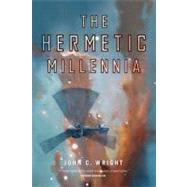
JOHN C. WRIGHT is an attorney turned SF and fantasy writer. He has published short fiction in Asimov’s SF and elsewhere, and wrote the Chronicles of Chaos, The Golden Age, and The War of Dreaming series. His novel Orphans of Chaos was a finalist for the Nebula Award in 2005. This is his second novel in the Count to a Trillion series.
www.scifiwright.com
Praise for Count to a Trillion:
“R . A. Lafferty meets A. E. Van Vogt in a cakewalk through a future full of antimatter, alien artifacts, transhumans, an Iron Ghost, a Texas gunfighter, and a Space Princess. Well worth the price of admission.
—Michael Flynn, author of The January Dancer
“This is much more than a space opera, and fills your mind with intriguing, startling possibilities. John Wright’s novel is bursting with ideas, blending mythology, machine and human evolution, mathematics, space travel, and much more. The hero, Montrose, is caught in the crosshairs of deadly, highly unusual foes—and his fate could very well determine the fate of everyone on Earth. Ultimately this is about human survival and potential, the future of mankind across a trillion star systems.”
—Brian Herbert, coauthor of the Dune series
“Spectacularly clever…in weaving together cutting-edge speculation along the outer fringes of science. Highly impressive.”
—Kirkus Reviews
The New copy of this book will include any supplemental materials advertised. Please check the title of the book to determine if it should include any access cards, study guides, lab manuals, CDs, etc.
The Used, Rental and eBook copies of this book are not guaranteed to include any supplemental materials. Typically, only the book itself is included. This is true even if the title states it includes any access cards, study guides, lab manuals, CDs, etc.